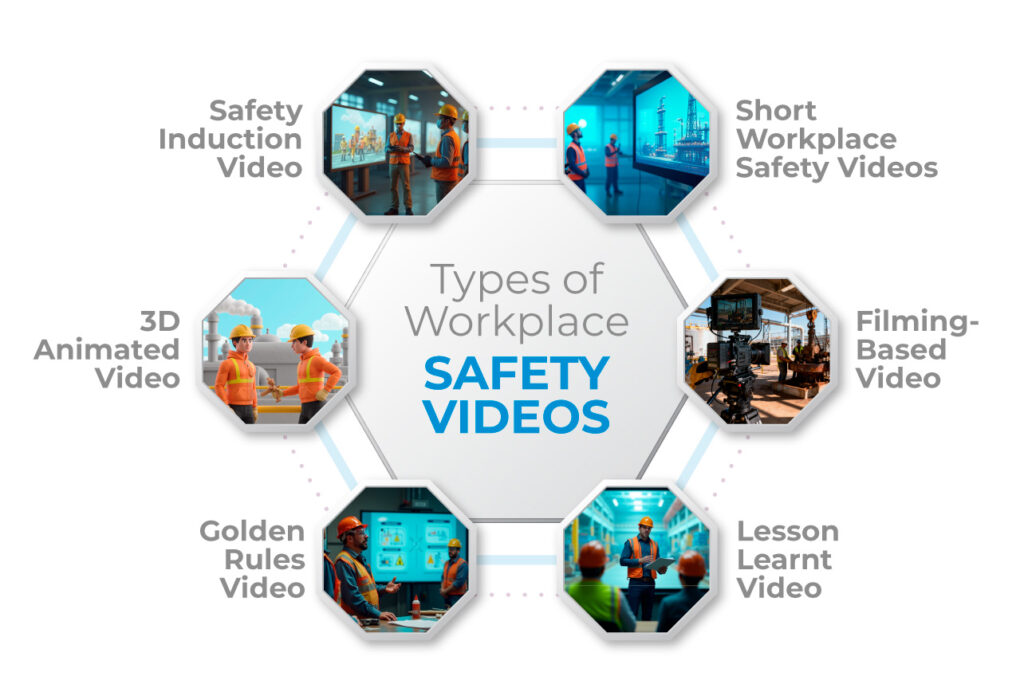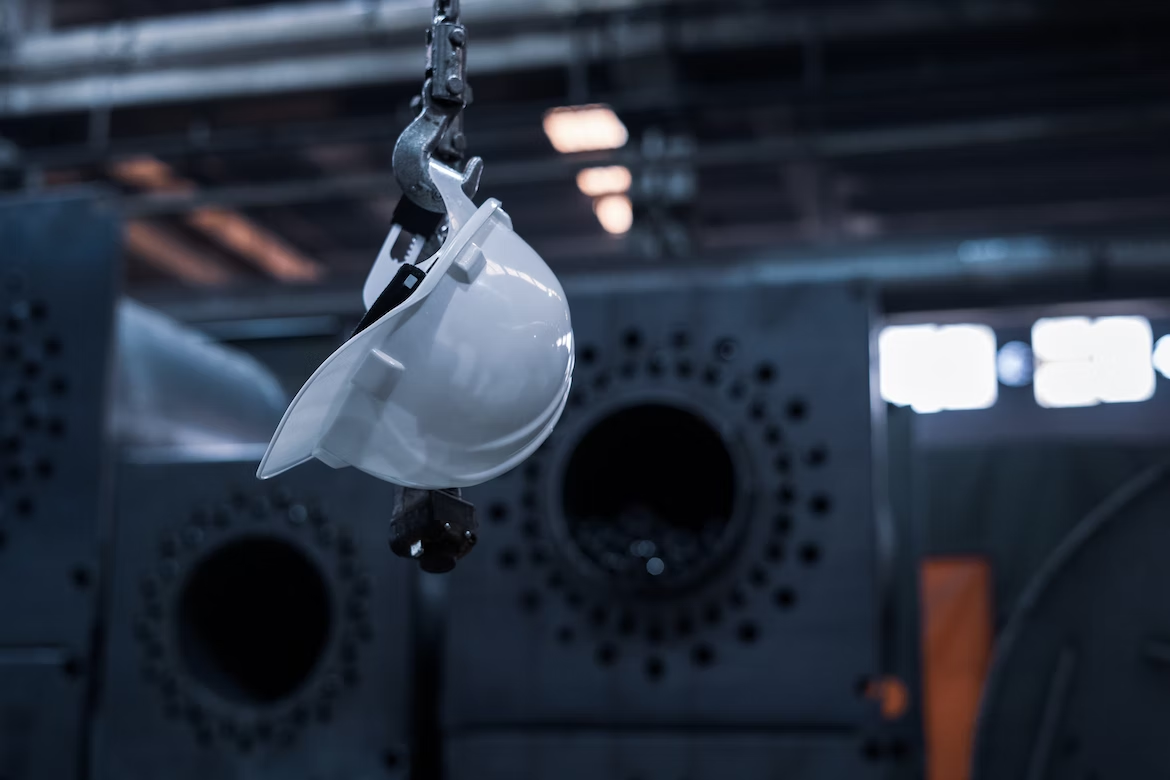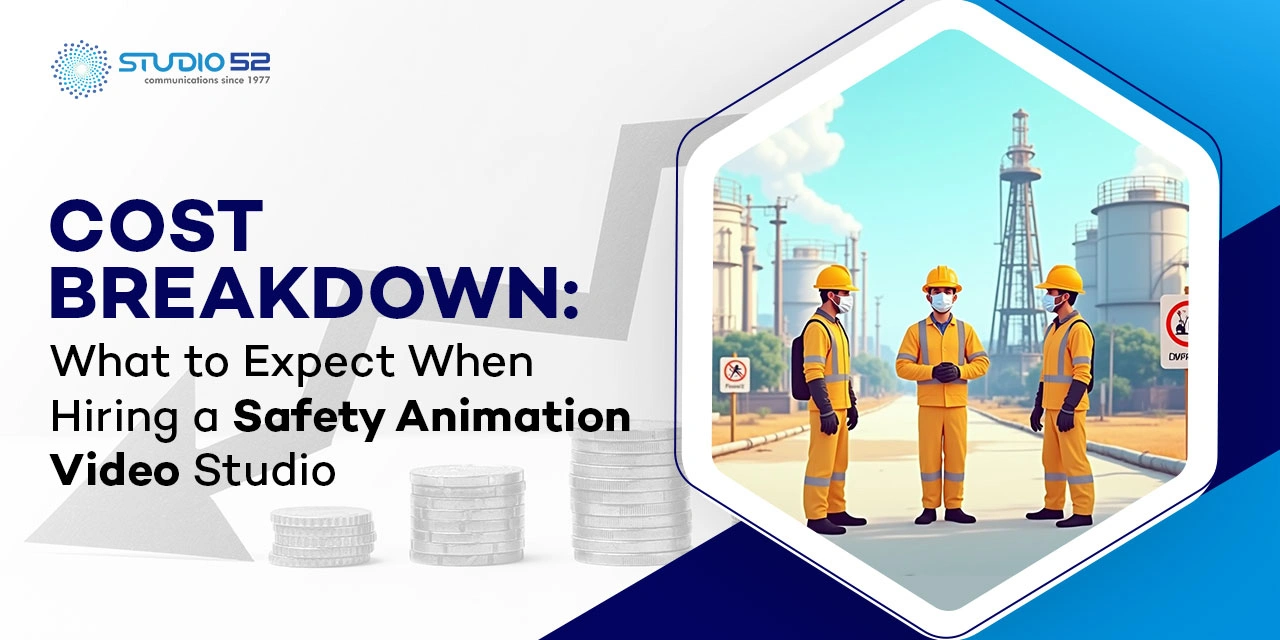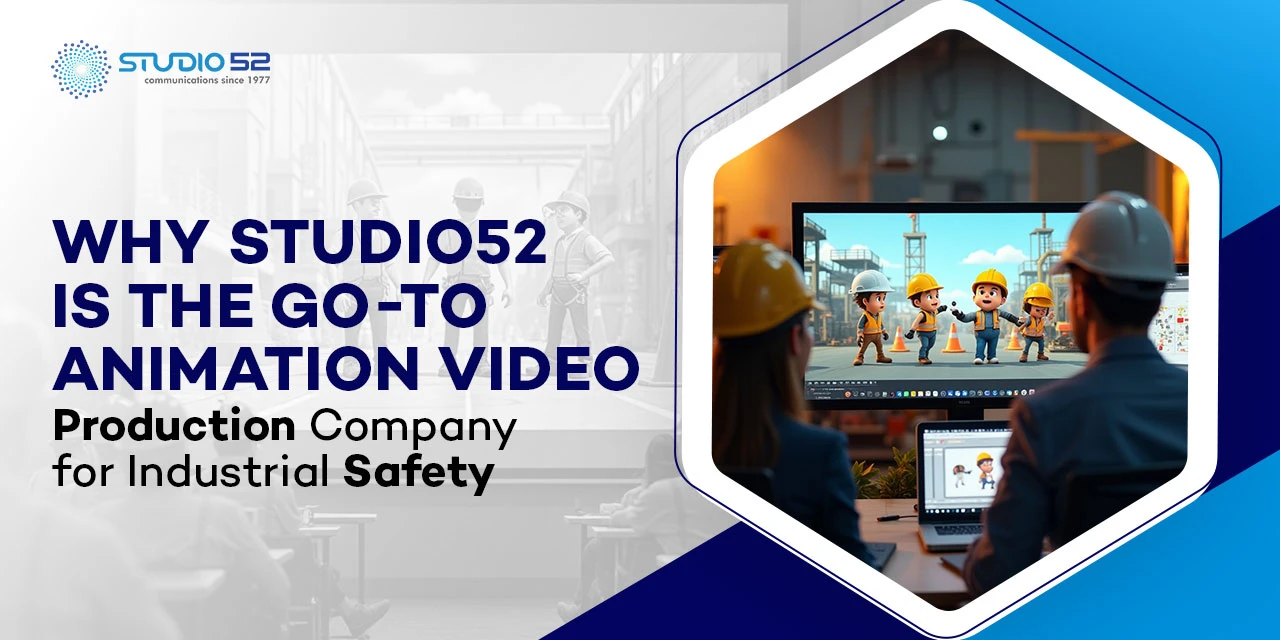Creating a zero-injury workplace is no longer an optional goal—it has become a vital business strategy for companies that value productivity, compliance, employee retention, and operational excellence. In today’s fast-paced work environments, safety is not just about avoiding accidents; it’s about building a culture that proactively prevents hazards, empowers employees, and strengthens an organization’s long-term success.
This comprehensive guide explores the essential elements of workplace safety, the steps to develop a zero-injury culture, and proven methods that organizations across industries can adopt to improve safety performance.
Table of Content
What is a Workplace Safety Video?
Workplace safety videos are purposeful short films designed to educate employees about potential hazards in the workplace and instruct them on how to avoid injuries and accidents. These videos serve as a visual and engaging medium to convey complex safety procedures, rules, and best practices tailored to specific work environments. They fulfill legal and ethical obligations for employers to provide a safe working environment while fostering a culture of safety awareness throughout the organization.
Why Workplace Safety Matters
The benefits of prioritizing workplace safety extend beyond legal compliance. A safe work environment:
- Reduces workplace accidents and illnesses, protecting employees from harm.
- Increases productivity by minimizing downtime caused by injuries or unsafe conditions.
- Enhances workforce morale and engagement, as employees feel valued and secure.
- Lowers costs related to workers’ compensation claims, legal actions, and equipment damage.
- Fosters a positive company image and meets stakeholder expectations for corporate responsibility.
Ensure a safer work environment with Workplace Safety Videos designed to train, educate, and protect your team.
Types of Workplace Safety Videos

1. Safety Induction Video
A Safety Induction Video is designed to introduce new employees, contractors, or visitors to essential workplace safety rules. It explains hazards, emergency exits, PPE requirements, safety protocols, and the company’s commitment to maintaining a secure work environment. These videos ensure everyone understands the basic safety expectations before entering the premises.
-
Short Workplace Safety Videos
Short Workplace Safety Videos are quick, impactful clips focusing on one specific safety message at a time. They are ideal for regular reminders, toolbox talks, and digital display screens across the workplace. Their concise nature makes them highly engaging and perfect for repetitive training.
-
3D Animated Video
3D Animated Safety Videos use high-quality digital animation to demonstrate complex scenarios that may be too dangerous or impossible to recreate in real life. They visually simplify machinery operations, accident simulations, hazardous processes, and step-by-step procedures. These videos are highly engaging and effective for incident learning and industrial safety training.
-
Filming-Based Video
Filming-Based Safety Videos are recorded on actual sites using real employees, equipment, and workplace locations. They help employees relate better as they see real environments and real situations. These videos are perfect for demonstrating correct vs. incorrect practices, equipment handling, and emergency procedures in a realistic manner.
-
Golden Rules Video
Golden Rules Videos highlight an organization’s core safety principles that must be followed at all times. These are typically non-negotiable rules related to high-risk activities like working at heights, confined spaces, lockout–tagout, electrical safety, and more. The video reinforces disciplined behaviour and builds a strong safety culture.
-
Lesson Learnt Video
A Lesson Learnt Video focuses on real incidents or near-miss situations that occurred in the workplace. Through visual storytelling, these videos explain what happened, why it happened, and how similar events can be prevented in the future. They are powerful tools for behaviour change as employees learn from actual mistakes without facing the risk themselves.
Why Use Workplace Safety Videos?
Using videos for safety training brings several advantages:
- Increase Engagement: Videos are more captivating than written documents or oral presentations. Animated or scenario-based videos can capture attention quickly.
- Enhance Understanding: Visual demonstration of proper safety protocols clarifies complex processes and makes it easier to follow instructions.
- Ensure Consistency: Videos deliver uniform safety messages across all employees and locations, reducing gaps in training quality.
- Boost Retention: The combination of audio and visual cues helps employees remember safety instructions better.
- Support Diverse Learners: Videos appeal to visual, auditory, and kinesthetic learning styles, accommodating different employee needs.
Incorporating workplace safety videos into your broader workplace safety strategies can lead to measurable improvements in accident prevention and overall workplace efficiency.

Do’s and Don’ts of Workplace Safety Videos
Creating effective workplace safety videos requires attention to details beyond just content. Here are essential do’s and don’ts:
Dos
Follow hazard management processes
It is critical that before beginning any risk prone work, you carry out Field Level Hazard Analysis, Job Hazard Analysis and Job Safety Analysis.
Carry safety devices
Safety devices like H2S detector and other such devices are essential for saving life. And make sure that whichever devices you carry are calibrated.
Wear Personal Protective Equipment (PPE)
Personal Protective Equipments are designed to control and prevent exposure to hazards. So always wear PPE which is specified for your nature of work.
Call out TOFS
TOFS stands for Time Out For Safety. Call out TOFS and consult your supervisor when you are not sure about your work or how to use equipment.
Report
Report any incident, near miss, spill or hazard. Reporting any hazardous condition is the first step towards prevention.
Don’ts
Don’t work without training
Each task requires special skills and even though you might feel confident in carrying out the task, ensure that you have received necessary training.
Never work without obtaining Permit To Work
Permit To Work (PTO) is a system designed for safe work practices. And it is mandatory to obtain PTO to perform certain tasks like hot work, electric work, entry in confined spaces etc.
Don’t ignore any safety rules, signs and instructions
Safety rules, signs and instructions are posted all over the site and they sum up years of experience and wisdom. So never ignore them.
Don’t panic in emergency
In case an emergency occurs, follow the emergency safety procedure without panicking as it may cause distress for you and your team members too.
Ready To Produce Effective Workplace Safety Videos?
Searching a company for effective workplace safety video production? Let us know. Studio52 is the leading video production company in Dubai & Saudi Arabia. Studio52 can create safety animations for any workplace or scenario. Whether construction, healthcare, manufacturing, or offices, we tailor videos to your specific safety needs. Our animations explain hazards, emergency plans, and equipment use clearly. Studio52 makes sure each video fits your company’s unique workplace to improve safety training for all workers.
Our team of experts is ready and waiting to partner with you to create a great marketing or training video that will get your message across effectively while maintaining its entertainment value. Contact us today.






